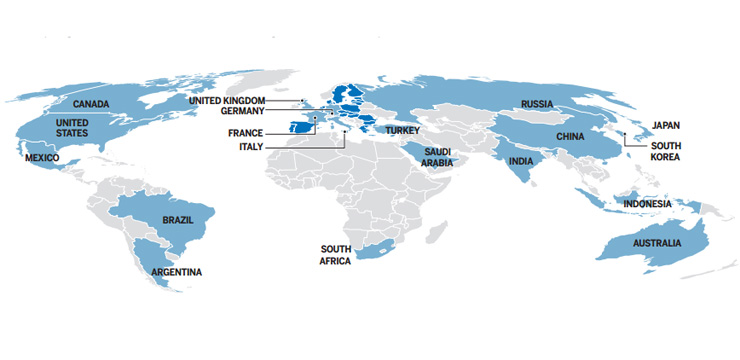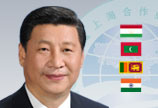
G20 seeks to enhance global institutions to meet growth goal
Comments Print Mail Large Medium SmallBRISBANE - G20 leaders on Sunday stressed the need to strengthen global institutions to raise global growth and deliver quality jobs.
In a communique issued after the two-day leaders summit against the backdrop of a modest and uneven global economic recovery, the G20 nations welcomed the increased representation of emerging economies on the Financial Stability Board (FSB) and agreed to maintain a strong, quota-based and adequately resourced International Monetary Fund (IMF).
"We are deeply disappointed with the continued delay in progressing the IMF quota and governance reforms agreed in 2010 and the 15th General Review of Quotas, including a new quota formula," said the communique.
"The implementation of the 2010 reforms remains our highest priority for the IMF and we urge the U.S. to ratify them."
The leaders agreed that they would work to ensure their bilateral, regional and plurilateral agreements complement to one another, are transparent and contribute to a strong multilateral trading system under the World Trade Organization (WTO) rules.
The breakthrough between the United States and India was hailed by G20 as it will help the full and prompt implementation of the Trade Facilitation Agreement and includes provisions on food security.
"We committed to implement all elements of the Bali package and to swiftly define a WTO work program on the remaining issues of the Doha Development Agenda to get negotiations back on track," reads the communique.
G20 Principles on Energy Collaboration was endorsed to reinforce collaboration on energy and an Action Plan for Voluntary Collaboration on Energy Efficiency was also agreed upon, according to the communique.
The leaders reiterated support for strong and effective actions to address climate change by working to adopt a protocol under the United Nations Framework Convention on Climate Change (UNFCC) that is applicable to all parties at the 21st Conference of the Parties (COP21) in Paris in 2015.
The concern for humanitarian and economic impact for the Ebola outbreak in Guinea, Liberia and Sierra Leone was also voiced in the three-page paper, which calls on international financial institutions to assist affected countries in dealing with the crisis.
Related Stories
China to host G20 summit in 2016 2014-11-16 16:23
G20 lays stress on economic resilience, financial stability 2014-11-16 16:01
Crimea's shadow hangs over G20 summit 2014-11-16 13:10
G20 sets economic tone, with Ebola, structural reform also on agenda 2014-11-15 21:07
Australian PM pledges to meet growth goal in five years at G20 summit 2014-11-15 20:13
World Bank hails G20 leaders' commitment to combat Ebola 2014-11-15 18:23
Background


